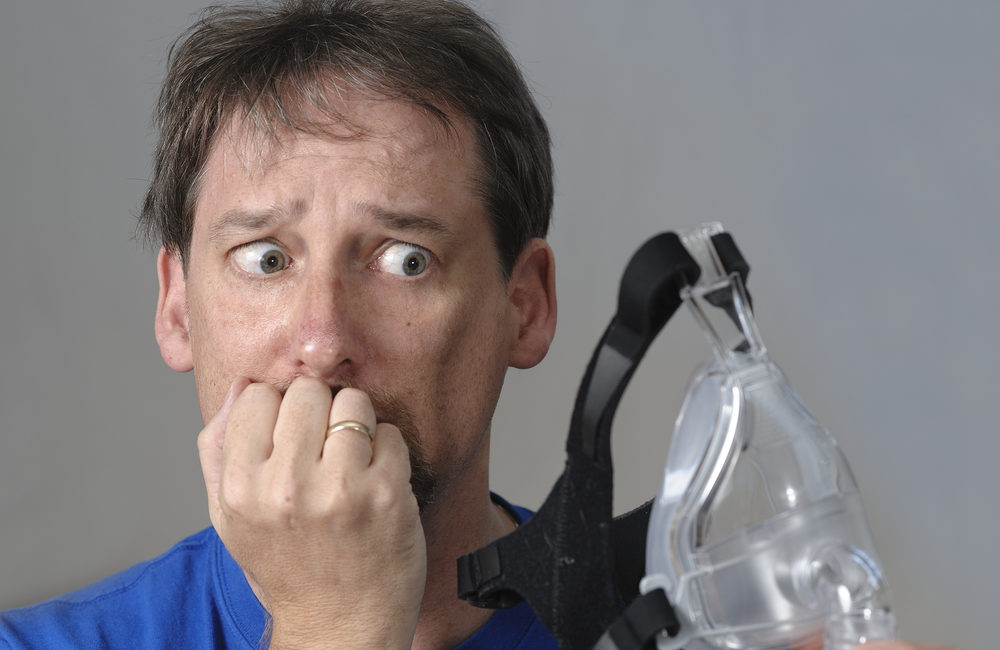Consumers across the United States are frustrated as they find out there are few alternatives to their recalled CPAP machines. In June 2021, Philips and the U.S. Food and Drug Administration (FDA) announced a CPAP machine recall affecting millions of consumers. Now, consumers and their healthcare providers are scrambling and struggling to find a suitable alternative that will keep patients safe.
Philips CPAP Machine Recall Information
In June 2021, Philips Respironics announced a recall of more than a dozen CPAP machines and ventilators. The CPAP machine recall is due to the potential for the polyester-based polyurethane (PE-PUR) foam inside the machine potentially breaking down. The sound abatement foam reduces sound and vibration during use.
If the foam breaks down, black debris and chemicals can be released into the device. Then, the chemicals can be inhaled, and particles may be inhaled into the patient’s airway or swallowed. The FDA says inhaling or swallowing the particles and chemicals could be,
“life-threatening, cause permanent impairment and require medical intervention.”
The FDA further notes that the chemicals (airborne and particulate) could also be carcinogenic, meaning it could increase the risk of certain cancers, including liver and kidney cancers.
For a full list of CPAP machines included in the recall, see here.
Consumers Frustrated and Struggling
While the recall continues, consumers are frustrated and are struggling with making the best decision for their health. So far, there are no suitable, equivalent alternatives to the Philips models that will provide the same level of respiratory support that these CPAP machines offer.
For patients with sleep and respiratory disorders, this is beyond worrisome. Some consumers did not hear about the CPAP machine recall from their healthcare providers, but rather learned about it online via social media. When attempting to contact Philips, consumers are advised to discuss the matter with their healthcare provider.
Philips has a hotline where consumers can register their devices, and they reportedly have a waiting list of consumers who may need a replacement device. So far, Philips has not given any estimates on how long that process may take. The company says they are actively and “expeditiously” working on replacement devices and repair kits. They have not been cleared to ship, and there is no estimate for how long it may be.
In the meantime, consumers are left with little option other than to continue using their CPAP machines, even if they pose a risk. One consumer tells The New York Times he has to continue using his CPAP machine for sleep apnea, regardless of the risk:
“I will continue to use my machine until I get a replacement,” said Mr. Camp, 72, a retired foreign service officer who lives in Falls Church, Va. “I believe any risk of cancer is less than the risk of the serious consequences of sleep apnea.”
Respiratory Machine Use Increased Due to COVID-19
CPAP machines and BiPAP ventilators have been useful for many years in helping patients with sleep and respiratory disorders. In the last year, healthcare providers report an increase in the use of these machines, largely due to the respiratory effects of COVID-19.
“Because the number of people coming into the hospital with severe respiratory symptoms has increased as a result of Covid-19, the demand for these devices has also increased, which is problematic since available supply has decreased as a result of the Philips recall,” said Dr. David Schulman, a pulmonary and critical care medicine specialist at Emory Healthcare.
It is unclear whether hospitals and patients are feeling the effects of device shortages, but this is certainly something the FDA is keeping an eye on.
Healthcare providers, patients, and regulators are also keeping an eye on the process for repair or replacement. The decision to continue use or risk the effects of not using a CPAP or BiPAP is a difficult choice for many consumers and healthcare providers. Healthcare providers are now speaking their concerns about a lack of timeframe for Philips to correct the issue and ensure patient safety.
Sources:
- https://www.fda.gov/medical-devices/safety-communications/certain-philips-respironics-ventilators-bipap-and-cpap-machines-recalled-due-potential-health-risks
- https://www.nytimes.com/2021/08/17/health/cpap-breathing-devices-recall.html
- https://www.cbsnews.com/news/cpap-machine-recall-sleep-apnea/
